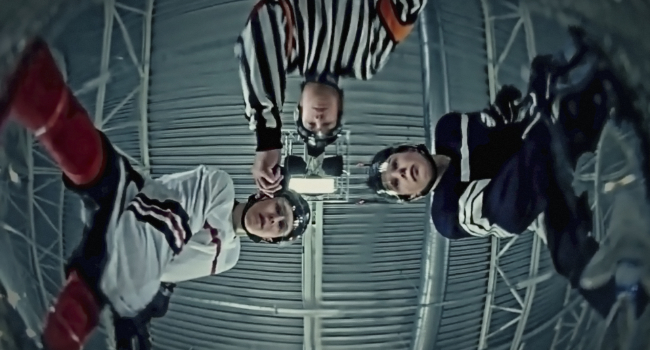
Axis Network Camera Frozen Below Ice Hockey Rink to Capture an Unexpected Angle
Known for its pioneering work in network technology, Axis Communications enables a smarter and safer world by creating solutions for improving security and business performance. To prove this, Axis conducted an experiment where they explored the limitations of their own technology. They did this by deploying one of their cameras in the most unexpected place – underneath the ice in an ice hockey rink.
“An ice hockey game is covered by cameras from all angles, except one. We’re all about pushing our limits and doing it in an innovative way. We want to broaden the general idea of what our cameras and systems can do, that is how the experiment came to be,” explains Carl-Axel Alm, Concept Engineer, Axis Communications.
The experiment was carried out by engineers from Axis in collaboration with a film team and ice hockey players, resulting in footage that pushes the boundaries of traditional security camera technology. The discrete modular camera, usually seen in ATM machines, onboard vehicles and other small spaces where a tiny camera needs to fit, was now frozen inside the ice, offering a completely new angle of the action taking place above.
To capture this, a modular setup was chosen. AXIS F2135-RE Fisheye Sensor was frozen in the ice together with a cable connecting it to the AXIS F9114 Main Unit which powered the camera sensor as well as processed the video feed coming from the sensor.
With a focus on durability, Axis Communications' range of surveillance cameras, access control, intercom, and audio systems are engineered to withstand a wide range of extreme conditions. The cameras used in the experiment offers up to full HD/1080p at 60 frames per seconds, with an exceptional 185° field of view. Combined with good low-light performance, the cameras capture the action in color, even with temperatures as low as negative 40° degrees.
Carl-Axel Alm continues:” With this project, we are proud to show the versatility of our product, as well as the durability and image quality. The experiment also sets the stage for potential future explorations in other challenging environments. There are endless possibilities that we look forward to exploring.”